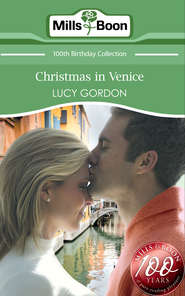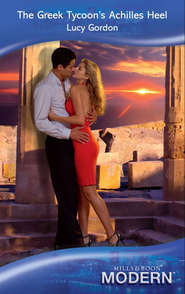По всем вопросам обращайтесь на: info@litportal.ru
(©) 2003-2025.
✖
Swept Away!: Accidentally Expecting! / Salzano's Captive Bride / Hawaiian Sunset, Dream Proposal
Автор
Год написания книги
2019
Настройки чтения
Размер шрифта
Высота строк
Поля
‘You promise faithfully?’
‘Yes, I promise.’
‘Fine. Then everything’s all right.’
Everything was far from all right, but she couldn’t say so. She could never forget what she’d seen.
But now his mood was lightening, changing him back into the Dante she knew.
‘Look on the bright side,’ he said. ‘Think what exciting pictures I must have given you.’
Pictures. Stunned, she realised that she’d never once thought of them.
She, to whom photography was such a part of her DNA that even her own lover’s treachery had been recorded for posterity, had forgotten everything the moment Dante had started to climb.
‘I didn’t take any pictures,’ she whispered.
‘What do you mean?’ he asked in mock outrage. ‘You take pictures of everything. How come I’m not considered worth the trouble?’
‘You know the answer perfectly well,’ she snapped. ‘I was too worried about you to think of photography.’
He shook his head. ‘I don’t know what the world is coming to,’ he said sorrowfully. ‘My great moment and you missed it. Shall I go back up and give you a second chance?’
‘Don’t bother,’ she said crisply. ‘The second take is never as effective as the first.’
They both knew what they were really talking about. The woman who let nothing get in the way of a good picture had missed this because she’d forgotten everything but his being in danger.
Now he would know, and how he would love that! But when she met his eyes she saw in them not triumph, but only bleak weariness, as though a light had gone out. He was struggling to present his normal, jokey self, but it was an effort.
‘Come on,’ he said tiredly. ‘Let’s go home.’
They found the car and drove back in silence. At the villa he immediately went for a shower. While he was away, Ferne outlined the events to the family but, remembering her promise, said nothing about what had happened at the end.
‘Trust Dante to go back for the dog,’ Hope said.
‘He loved it,’ Ferne said. ‘It was as though risking his life gave him some sort of kick.’
‘His father was the same,’ Toni sighed. ‘Always finding excuses to do crazy things.’
‘Yes, but—’ Hope began to speak, then stopped.
Puzzled, Ferne waited for her to continue. Then Hope met her husband’s eyes and he gave an almost imperceptible shake of the head.
‘If a man is like that, he’s like that,’ she finished lamely. ‘I’ll just go up and see if he’s all right.’
She returned a moment later saying, ‘I looked in. He’s asleep. I expect he needs it.’
Then she deftly turned the conversation, leaving Ferne again with the impression that where Dante was concerned there were strange undercurrents.
Next morning he’d already left for town when she rose. She tried not to believe that he was avoiding her, but it was hard.
Her new credit cards arrived in the post, and news came from the consulate that her passport was ready. She drove down and collected it, then went to a café by the water and sat, considering.
Surely it was time to move on? Her flirtation with Dante had been pleasant but it would lead nowhere. Forgetting to take pictures was an ominous sign, because it had never happened before. But the mere thought of a serious affair with him was madness, if only because of his habit of withdrawing behind a mask.
On the surface he was a handsome clown who could tease his way into any woman’s heart. But, when she’d given him her heart, what then? Would she be confronted by the other man who concealed himself inside, and whose qualities were beginning to seem ominous? Would he frighten her? Or would Dante keep her at bay, allowing her only to see what suited him? Either prospect was dismaying.
She thought of their first meeting on the train when they had sat together, thundering through the night, talking about the circles of heaven and hell. It had seemed a trivial conversation, but now she had the conviction that Dante was mysteriously acquainted with hell. Yesterday he had looked into its fiery depths not once but twice. Unafraid. Even willing.
Why? What did he know that was hidden from the rest of the world? What was his hell, and how did he confront it?
She was sunk so deep in her reverie that it took a while to realise that her mobile phone was shrieking.
‘Ferne—at last!’
It was Mick Gregson, her agent, a cheerful, booming man.
‘You’ve got to get back here,’ Mick said. ‘There’s a great job coming up, big time, and I’ve put your name forward.’
He outlined the job which was, indeed, ‘big time’. Following Sandor’s example, a major Hollywood actor had just signed up for a West End play, seeking the prestige of live theatre. Next to him Sandor Jayley was peanuts.
‘The management wants only the best for the pics, and when I mentioned you they were very interested.’
‘I’m surprised anyone wants me after last time,’ she observed wryly.
‘I’ve heard that they value your “self-sacrificing honesty”. Don’t laugh; it’s doing you a world of good. Seize this chance, sweetie. Gotta go.’
He hung up.
So there it was, she thought, staring at the silent phone: the decision was made for her. She would say farewell to Dante and return to England, glad to have escaped.
Escaped what?
She would have to learn to stop wondering about that.
The phone rang again. It was him.
‘Where are you?’ he asked in a voice that sounded agitated. When she told him, he said, ‘Don’t move. I’ll be there in a few minutes.’
She was waiting for him, baffled, when he drew up at the kerb.
‘Sorry to hassle you,’ he said as she got in. ‘But I need your help urgently. I’ve had a call from a man who owns a villa a few miles away and wants me to sell it. I’m going up there now, and I need a great photographer, so of course I thought of you.’
‘I’m flattered, but my experience is showbiz, not real estate.’
‘Selling a house can be a kind of showbiz, especially a house like this. In the nineteenth century, it was notorious. The owner had a wife and three mistresses and kept each one in a different wing. Then he was murdered.’
‘Good for them.’











